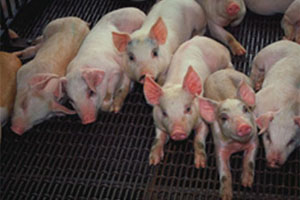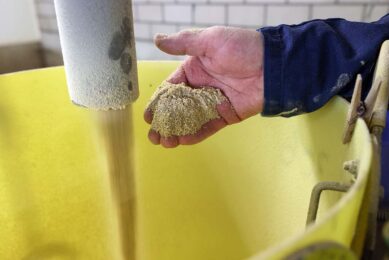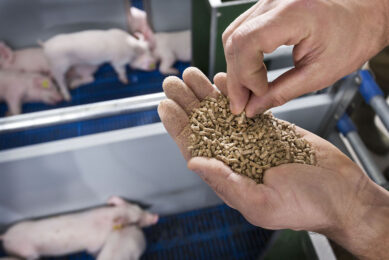Liquid in-feed antimicrobial can reduce PEDv risk

Using a liquid in-feed antimicrobial can help reduce the risk of Porcine Epidemic Diarrhoea virus infection of naïve pigs.
Recently, contaminated feed was confirmed as a vehicle for Porcine Epidemic Diarrhoea virus (PEDv) infection of naïve piglets. This research provides in vivo data supporting the ability of a liquid antimicrobial product to reduce this risk.
Sal Curb, produced by Kemin Industries, Des Moines, IA, USA, is a liquid antimicrobial that is approved by the Food and Drug Administration. This is usually used to control Salmonella contamination in poultry and swine diets.
To test its effect against PEDv, feed treated with the product was spiked with a stock isolate of PEDv, which PEDv-naïve piglets were allowed to ingest via natural feeding behaviour (ad lib) for a 14-day period. For the purpose of a positive control, a separate group of piglets was allowed to ingest non-treated feed also spiked with stock PEDv.
A negative control group received PEDv-free feed. Clinical signs of PEDv infection (vomiting and diarrhoea) and viral shedding in faeces were observed in the positive control group two to three days post-consumption of non-treated feed.
In contrast, no evidence of infection was observed in pigs fed treated feed or in the negative controls throughout the 14-day study period. In addition, the treated feed samples had higher mean PEDv Ct values than samples from the positive control group.
These data provide proof of concept that feed treated with this antimicrobial can serve as a means to reduce the risk of PEDv infection through contaminated feed. Furthermore, the results from the positive control group provide additional proof of concept regarding the ability of contaminated feed to serve as a risk factor for PEDv infection of naïve piglets.
The research was carried out by Scott Dee and Casey Neill, both from Pipestone Veterinary Practices in Minnesota, USA; and Travis Clement, Jane Christopher-Hennings and Eric Nelson of South Dakota State University. The article was published in BMC Veterinary Research.
 Beheer
Beheer








 WP Admin
WP Admin  Bewerk bericht
Bewerk bericht